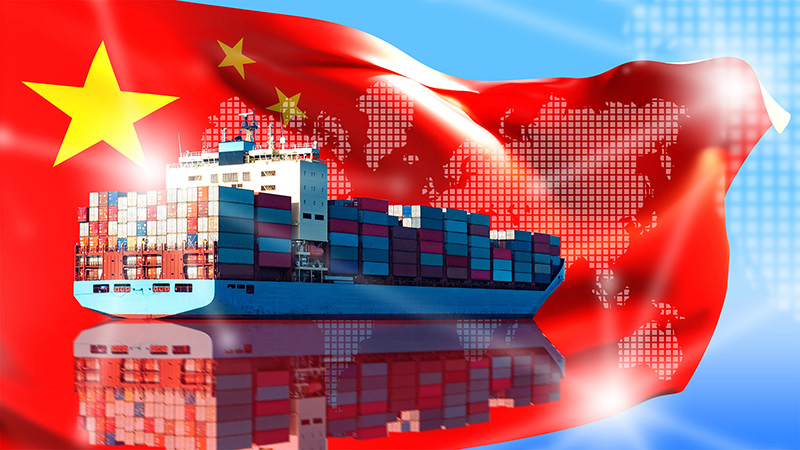When you see a product labeled “Made in China,” it means the product was produced in the People’s Republic of China. As one of the world’s largest manufacturing centers, China is a popular destination for importers seeking competitive, high-quality products. You’ll also see “Made in China” on a variety of clothing, fashion, and certain industrial equipment, including products from the largest manufacturers. Consumers don’t think it’s Chinese. So, “What does PRC mean?”
Meaning of Made in PRC
Made in PRC stands for Made in China. It’s a way to mark a product as made in China, but using the first letters of the country’s full name obscures where the product is made.
Add to that the fact that a large portion of the population in large markets like India and the US don’t want to buy products from China, and the PRC mark is a way many Chinese manufacturers use to circumvent these issues.
Most people are too lazy to dig into what the PRC means, and most people don’t think of “China” at first glance when trying to figure out what the PRC stands for.
This gives your product a chance to be treated fairly by consumers who don’t have a knee-jerk reaction to the “Made in China” label because, to the average consumer, it obscures where the product is made.
Difference Between Made In China vs Made In PRC
Both “Made in China” and “Made in PRC” refer to products that are manufactured in the People’s Republic of China. The main difference between the two is the wording used to indicate the country of origin.
“Made in China” is a more commonly used and recognized phrase to indicate that a product was manufactured in China. It is the standard label used on products that are exported from China to other countries.
On the other hand, “Made in PRC” stands for “Made in the People’s Republic of China.” PRC is the official acronym for China, so “Made in PRC” is essentially synonymous with “Made in China.” The term PRC is sometimes used as an alternative to China in order to adhere to regulations that require specific wording on product labelling.
In essence, there is no substantial difference between the two terms, as they both convey the same message of a product being manufactured in China.
Is Made in PRC Legal?
Yes, products that are labelled as “Made in PRC” are legal. PRC stands for the People’s Republic of China, so products labelled as such indicate they were manufactured in China. As long as the product meets all regulatory requirements and is not counterfeit, it is legal to be labelled as being made in PRC.
Why do Manufacturers Choose “Made in PRC”?
There are several reasons why manufacturers choose to label their products as “Made in PRC” (People’s Republic of China) in English:
“Made in China” avoids low-quality stigma
Hopefully, any product you source is a well-made, high-quality product. If a consumer sees a Made in China label, they may never give it a fair chance. If a simple “Made in China” label can avoid this stigma, then it’s smart marketing.
Made in China is better for marketing
Using a Made in China label instead of a Made in China label helps avoid bad marketing or media coverage. Whenever anti-Chinese sentiment is high or local reports of jobs being moved overseas come out, using a Made in China label to avoid any potential backlash will be very beneficial.
Made in China has become a common labelling practice in China
Many Chinese manufacturers, they already label sourced items as Made in China, and since the seller has no good marketing reason to want to change it back, the change is made before the product is received.
Most people will not put in the extra effort to learn what the PRC stands for, they will just be satisfied with not having “China” written on it, so for most businesses, this labelling is a smart move.
Why Are Most Products Made in PRC?
Many products are manufactured in China for the following reasons:
Cost-effectiveness: China’s labour and production costs are generally lower compared to other countries, making it an attractive option for businesses looking to save on manufacturing costs.
Large workforce: China has a large population, which means there is a large labor force available for production activities. This allows businesses to easily scale up their operations and meet high demand.
Infrastructure: China has invested heavily in infrastructure, including transportation networks and industrial parks, making it easier for businesses to set up manufacturing facilities.
Supply chain advantages: China has a well-developed supply chain ecosystem, with many suppliers and manufacturers located next to each other. This makes it easier for businesses to source raw materials and components for their products.
Government policies: The Chinese government has implemented policies and incentives to attract foreign investment and encourage domestic manufacturing activities.
Good logistics: China has many airports, railways, and ports for transporting goods. The pace of China’s infrastructure expansion has already begun. Through the Belt and Road policy strategy, China seeks to improve logistics in neighbouring countries.
Is It Safe to Buy Made in PRC Products?
Many people have concerns about the safety and quality of products made in China. While it is true that there are counterfeit or inferior goods from China, not all products made in China are unsafe.
Does Made in China mean poor quality?
For many years, the total value of goods made in China was negative. For some reason, most consumers equate products made in China with inferior products. Others even believe that these products are harmful to health.
Made in China brand
The “Made in China” brand has historically been challenged by US Cold War media campaigns that have negatively reported on the brand and public hearings in the US Congress to discuss the safety of Chinese products. Although there are some facts, the fact is that Chinese manufacturers produce most of the world’s high-quality products.
Nowadays, there is no need to pay special attention to the country of origin. It is better to choose branded products because well-known companies will not risk selling low-quality products even if they are labeled “Made in China”.
To address the perception of Chinese products, marketers have opted to revise the labeling to “Made in China.” This designation can be found on various high-quality brands, including Bosch, Makita, and Shimano. While these products are manufactured in Chinese facilities, their quality matches that of goods produced for the European market.
Why do people mistakenly believe that Made in China means poor quality?
In this country, you can find a lot of products of the same style, but the prices vary by 2-10 times. The main reason is that the manufacturing materials or important internal parts are completely different.
Made in China is not always of poor quality. But some reasons for poor quality include:
- Suppliers are hesitant to invest in high-quality raw materials, as well as the production and manufacturing of superior products, due to the lower cost associated with mass-produced alternatives.
- Suppliers exhibit a lack of clarity regarding quality requirements or do not possess comprehensive knowledge of these specifications.
- Some manufacturers ignore quality.
- Certain manufacturers may lack the necessary expertise to meet quality expectations or may not possess the appropriate machinery and equipment that adhere to established standards.
- There is a time constraint, and it is essential to deliver a high-quality product.
- The current profit margin is unsustainably low, prioritizing profit at the expense of quality.
- Not all manufacturers prioritize the quality of their products and services.
Approved Abbreviations for Products Made in PRC/China
Customs regulations clearly state that the country of origin must be clearly stated in English, and any abbreviations of the full name must clearly state the country of origin.
Legal Shipping Label (per U.S. Customs)
- China
- China, P.R.
Illegal Shipping Label (per U.S. Customs)
- P.R.C.
- People’s Republic of China, C.
- Made in China
Illegal Abbreviations
The outside shipping box must clearly state “China” in English. Any abbreviation without this, such as the popular “PRC”, is an illegal abbreviation for a shipping container.
Buying from P.R.C with GOODSagent Sourcing Agent
Purchasing products made in China is a complex challenge. The best advice is to find a reliable product-sourcing company in China. GOODSagent sourcing agent can help you differentiate the quality of the product and help you get the product into your country quickly.




